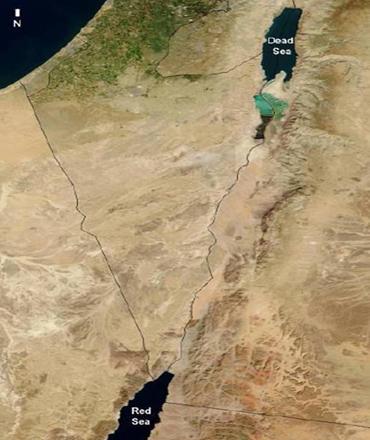You are here
‘Jordan has invested JD40m in desalination projects over past 3 years’
By Hana Namrouqa - Jan 09,2019 - Last updated at Jan 09,2019
AMMAN — The Ministry of Water and Irrigation has implemented desalination projects worth JD40 million which have generated 3,500 cubic metres of water per hour over the past three years, a senior government official said on Tuesday.
The projects included the construction of new desalination plants and the rehabilitation of existing ones, Minister of Water and Irrigation Raed Abul Saud said in a statement e-mailed to The Jordan Times.
The projects were implemented on a build-operate-transfer (BOT) basis, Abul Saud said, indicating that the ministry seeks to develop the water sector in partnership with the private sector.
The projects, implemented on a BOT basis, in partnership with the private sector, provided more water, improved supply and enhanced the efficiency of water infrastructure while securing the necessary funds for projects, he added.
The minister said in the statement that this formula of public-private partnership allows the state to recover its investment after a set period of time.
“Over the past three years, a total of 29 desalination projects were implemented at a cost JD40 million… Jordan is one of the first countries to implement strategic water and wastewater projects on a BOT basis, as the Kingdom faces a difficult water situation in light of critical economic conditions,” Abdul Saud said.
Strategic desalination projects implemented on a BOT basis include: the Mashtal Faisal Wells in Jerash Governorate, several wells in the northern region, Maan, Karak, the Jordan Valley and Aqaba, according to the ministry.
The Kingdom’s first seawater desalination plant opened in Aqaba in March 2017. The project produces 500 cubic metres per hour and is running in affiliation with the KEMAPCO Arab Fertilisers and Chemicals Industries, one of the companies under the Arab Potash Company’s umbrella.
The ministry announced in late December of last year plans to establish a desalination project in Aqaba with an initial capacity of 100 million cubic metres (mcm) per year.
The project is set to supply all of the governorates via a national carrier, the ministry said.
However, Ministry Spokesperson Omar Salameh said that the project is not a substitute to the Red Sea-Dead Sea Water Conveyance (Red-Dead) Project.
“The newly announced project is a national strategic scheme which will be implemented on a BOT basis to desalinate the Red Sea’s water,” Salameh told The Jordan Times.
Jordan signed a memorandum of understanding with Israel and Palestine in December of 2013 to implement the first phase of the Red-Dead Project.
Under the first phase, a total of 300mcm of water will be pumped each year, eventually transferring up to 2 billion cubic metres of seawater per year from the Red Sea to the Dead Sea, according to the Ministry of Water and Irrigation.
A total of 85-100mcm of water will be desalinated every year, while the remaining seawater will be pumped out from an intake located in the north of the Gulf of Aqaba.
In November of last year, Israeli media reports claimed that Israel had told Jordan that a joint agreement for the construction of a pipeline transferring water from the Red Sea to the Dead Sea would “not go ahead”, until Israel was allowed to reopen its embassy in Amman.
In February of 2018, Jordan stressed its commitment to implementing the Red-Dead Project, despite repeated withdrawal signals from Israel.
Related Articles
AMMAN — The Ministry of Water and Irrigation has modified the final submission date of the prequalification proposals for the first phase of
AMMAN — The Red Sea-Dead Sea Water Conveyance Project is still on the agenda, despite Israeli procrastination, Prime Minister Omar Razzaz sa
AMMAN — The Water Ministry on Sunday signed the engineering services agreement for the first phase of the Red Sea-Dead Sea Water Conveyance

















